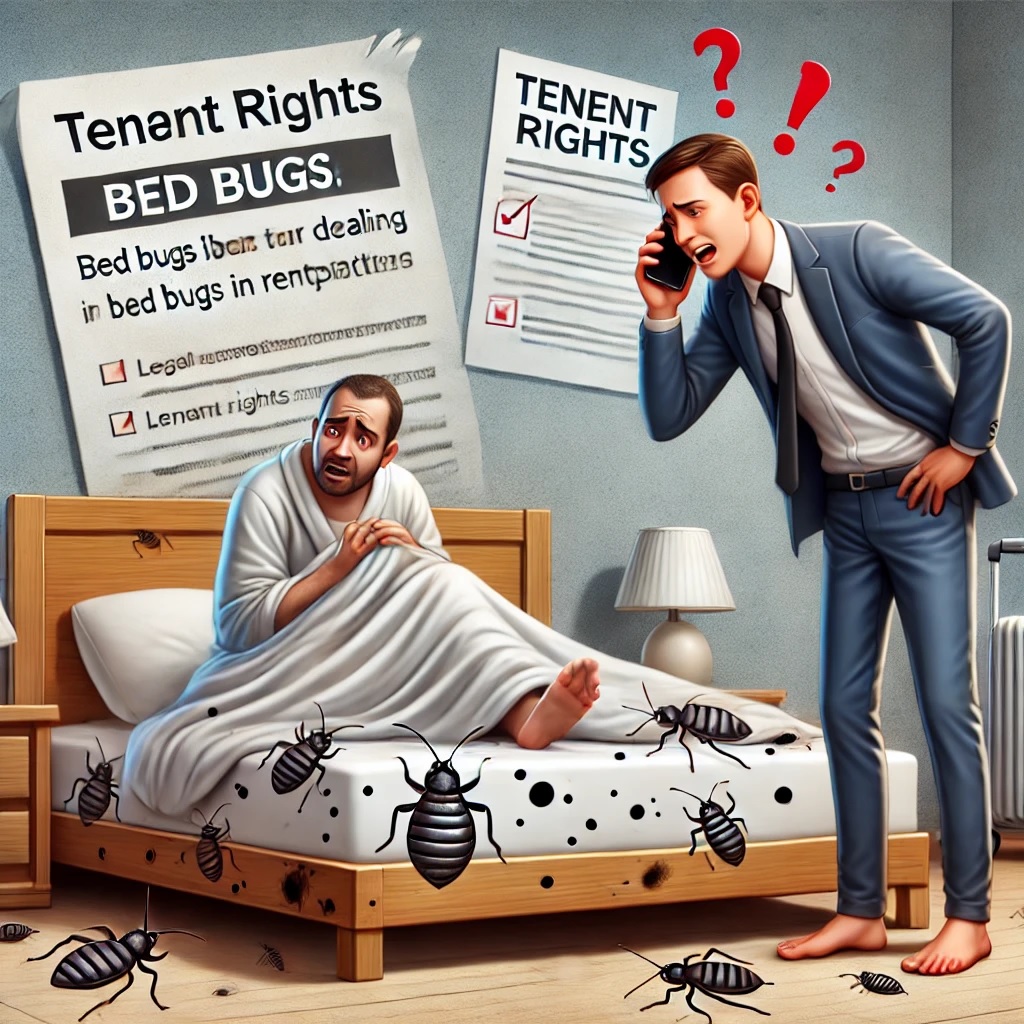Waking up with itchy bites and finding bed bugs in your rental isn’t just an inconvenience – it’s a full-blown nightmare. If you’ve ever experienced this, you know how frustrating it can be to figure out who’s responsible for sorting it out. Is it your landlord’s job to deal with the infestation? Or could you end up having to foot the bill yourself? Let’s cut through the confusion and get straight to what you need to know about bed bug liability in rental properties.

Bed bugs are sneaky little creatures. They’re experts at hitchhiking their way into your home, usually through luggage, second-hand furniture, or even on your clothing after visiting an infested place. Once they’re in, they can spread quickly – especially in multi-unit buildings where shared walls give them easy access to new rooms.
One of the biggest headaches is that bed bugs don’t discriminate. You could be living in a swanky high-rise or a cosy flat, and they’d be equally happy to make your space their new home. Spotting them can be tricky at first, but signs like small blood stains on your sheets, itchy bite marks, or tiny dark spots on your mattress are dead giveaways.
Here’s where things get interesting. When it comes to rental properties, both landlords and tenants have responsibilities. But knowing who’s at fault depends on a few factors.
Landlords are generally responsible for keeping the property habitable, which includes dealing with pests like bed bugs. They have a duty to provide a safe, clean living environment, and if a bed bug infestation pops up, they’re typically the ones who should be calling in pest control. In many areas, housing regulations specifically hold landlords accountable for maintaining pest-free properties.
But what about tenants? Well, if you’ve brought the infestation into the property – say, by dragging in a bed bug-ridden sofa you found on the side of the road – you might end up on the hook. Tenants are expected to keep their homes clean and report any pest problems as soon as possible. If you delay telling your landlord and the infestation gets worse, that could work against you.
Bed bug laws vary depending on where you live, but in most parts of the UK, landlords have to keep their rental properties in good, liveable condition. This includes dealing with pests that make the property uninhabitable. If a tenant can prove that the infestation existed before they moved in, or that the landlord ignored reports of bed bugs, then the landlord could be held liable for failing to address the issue.
In some places, there are even local regulations that spell out how quickly landlords must act once a bed bug problem is reported. Neglecting to handle the situation could be considered a breach of contract, and tenants might be entitled to take legal action.
It’s important to note that things can get more complicated in multi-unit buildings, like flats or apartment blocks. If bed bugs spread from one unit to another, it’s often the landlord’s responsibility to deal with the entire building to ensure the infestation doesn’t continue. If only one unit is treated, the problem could easily come back.
Alright, so you’ve found bed bugs. What now?
First things first: report it to your landlord straight away. It’s important to do this in writing – emails work perfectly. Not only does this create a paper trail, but it also shows you took action promptly, which is key if the situation escalates.
Next, document everything. Take photos or videos of the bed bugs, any bites, and any damage to your belongings. Keep a log of when you first noticed the problem and any communication you’ve had with your landlord. The more evidence you have, the better – especially if the issue ends up in a legal dispute.
Once you’ve notified your landlord, request professional pest control. Dealing with bed bugs isn’t something that should be left to DIY solutions. Your landlord should arrange for a licensed exterminator to assess the situation and carry out treatment.
Unfortunately, not all landlords are quick to respond to pest problems. If your landlord ignores your report or drags their feet on arranging treatment, you don’t have to just sit and suffer.
One option is to escalate the issue by contacting your local council or housing authority. They can carry out an inspection and, in some cases, force your landlord to take action. Some tenants consider withholding rent until the problem is resolved, but be careful with this approach – it’s only legal in certain circumstances and could backfire if not done correctly.
If all else fails, you might need to consider legal action. If your landlord refuses to deal with the infestation, they could be in breach of the tenancy agreement, and you may be able to sue for damages, including the cost of replacing infested items, medical expenses, and compensation for the stress caused.
Let’s be honest – nobody wants to deal with bed bugs in the first place. So, how do you keep them at bay?
One of the best things you can do is be cautious with second-hand furniture. Always inspect items thoroughly before bringing them into your home. Bed bugs love to hide in mattress seams, sofas, and even electronics. When travelling, keep your luggage off the floor and check hotel beds for signs of bugs.
Working together with your landlord is also key. Regular inspections and prompt action at the first sign of bed bugs can save both of you a lot of hassle in the long run.

Dealing with bed bugs in a rental property is stressful, but knowing your rights as a tenant can make all the difference. If you find yourself dealing with an infestation, remember that your landlord is usually responsible for keeping the property habitable. Document everything, report the issue quickly, and don’t be afraid to stand up for your rights if your landlord refuses to act.
Here at ThermoPest, we know how tough bed bug infestations can be, and we’re here to help. Whether you’re a landlord looking to keep your property pest-free or a tenant dealing with an infestation, get in touch, and we’ll help you take control of the situation.